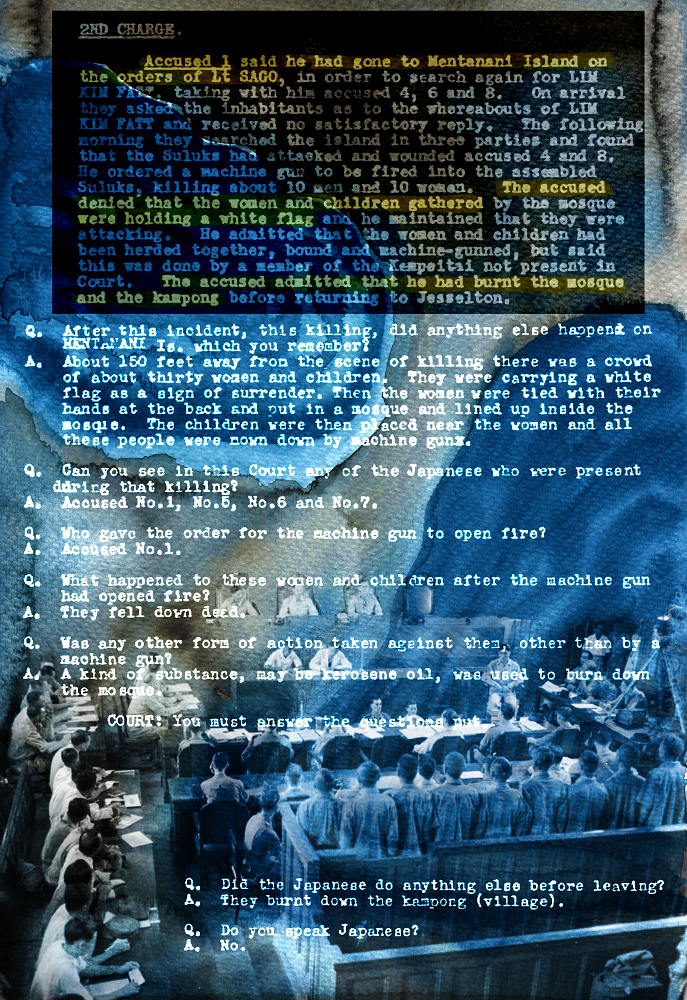In July 1946, at a war crimes court in the Chinese Secretariat building, a Malay businessman is at the centre of a keenly followed trial of eight members of the Jesselton (British North Borneo) Kempeitai. The accused face numerous charges, including the forcible removal of residents from Mentanani Island, torture of arrested men, as well as machine-gunning of women and children. Evidence provided by Bachee bin O.K.K. Hassan is discussed at length during the trial, and for good reason: as an interpreter for the Japanese, his eyewitness testimony and ability to identify the accused are damning for those on trial. The prosecution’s case hinges on his evidence.
Bachee’s evidence showed that he was probably a reluctant participant in Japanese operations, recruited under coercive circumstances. Originally a businessman living at Inanam (British Borneo), Bachee was dragged out of his house on 28 October 1943 (along with his wife and son), on the suspicion of being a guerrilla member and taking part in the Double Tenth uprising. In fact, Bachee was never directly involved. Along with his family, Bachee was thrown into prison, where over 200 people were already languishing. His saving grace was his knowledge of the Suluk dialect, for which the Japanese pulled him out of prison to act as their interpreter (to translate Malay to Suluk). Bachee was set free for his services to the Japanese, but it is not known if his family was given the same amnesty.
In February 1944, Bachee accompanied Kempeitai officers to Mentanani Island (off the northwest coast of Sabah), along with Tong Ah Seong, a Chinese interpreter. They were there in search of the infamous Lam [Lim] Keng Fatt, a key leader of the Double Tenth revolution. The officers interrogated a Suluk native, and beheaded the unfortunate man when he fails to provide them with any information. On the same trip, the Kempeitai officers arrested 60 Suluk men and brought them to Jesselton Prison.
Back on the mainland, Bachee was forced to accompany the Kempeitai officers to Jesselton Prison daily. He witnessed the torture of over 200 Suluk men from at least six different islands. Besides incessant beatings, Bachee described the Japanese ‘water treatment’: “The victim would be tied hands and feet. He was made to kneel on the floor. Water was then poured into the mouth of the victim. When the stomach of the victim was swollen with water inside the torturer would step on it. Water would then rush out of the mouth and the treatment would be repeated.”
